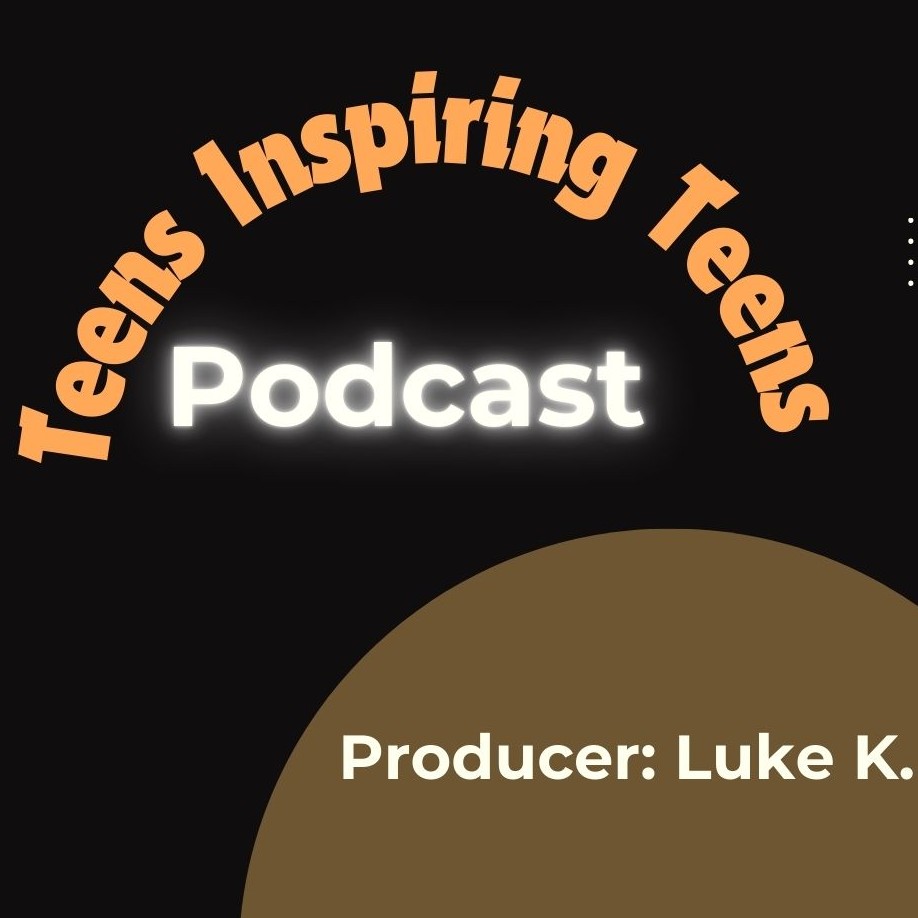Discover Teens Inspiring Teens
Teens Inspiring Teens

11 Episodes
Reverse
Today, We explore "The Role of Exercise in Mental Health." Discover how regular exercise can reduce depression, anxiety, and stress. Hear heartwarming stories of how exercise transformed lives and find inspiration in a seven-step action plan to boost your mental game. Let's make a positive impact on our mental health and our planet! Stay awesome, healthy, and keep spreading those good vibes!
Today's episode is all about finding creative and practical solutions to make a positive impact on homelessness in big cities with genuine compassion.
==== References ====
"UCSF CASPEH Executive Summary 2023" site: https://homelessness.ucsf.edu/sites/default/files/2023-06/CASPEH_Executive_Summary_62023.pdf
U.S. News & World Report. (April 6, 2023). These States Have the Largest Homeless Populations. Retrieved from https://www.usnews.com/news/best-states/articles/states-with-the-most-homeless-people
American Psychological Association. Abramson, A. (November 1. 2021). Cultivating empathy. Monitor on Psychology, Vol. 52, No. 8. Retrieved from https://www.apa.org/monitor/2021/11/feature-cultivating-empathy
Why Should You Volunteer At Your Local Food Bank? - Second Harvest of the Greater Valley. Retrieved from: https://localfoodbank.org/why-should-you-volunteer-at-your-local-food-bank
Throughout this podcast, we've discussed the importance of reducing single-use plastics, using reusable alternatives, advocating for minimal packaging, getting involved in cleanup initiatives, and educating others about plastic pollution. These tips may seem simple, but when implemented collectively, they can make a significant impact on our environment.
Here are some resources and support information to help you dive deeper into the topic of plastic pollution and BPA:
National Geographic: https://www.nationalgeographic.com/environment/plastic
https://ntp.niehs.nih.gov/whatwestudy/topics/bpa/index.html
."Chemicals in Plastic: What’s Safe and What’s Not" by the American Academy of Pediatrics: https://www.healthychildren.org/English/health-issues/conditions/treatments/Pages/Chemicals-in-Plastic-Whats-Safe-and-Whats-Not.aspx
"Plastic Containers and Food Safety" by the Harvard T.H. Chan School of Public Health: https://www.hsph.harvard.edu/news/features/plastic-containers-and-food-safety/
"Microwaving food in plastic containers: A recipe for disaster?" by the Medical News Today: https://www.medicalnewstoday.com/articles/321764
"Leaching of chemicals from plastic containers into food and drinks" by the World Health Organization: https://www.who.int/foodsafety/publications/micro/leaching/en/
Today, We tackle diabetes and lifestyle choices. With shocking stats on diabetes prevalence, inspiring stories, and a 7-step action plan, Luke empowers teens to make healthy changes. Together, they become health detectives, preventing diabetes and shaping a brighter future. Stay curious and inspired!
Today, we tackle the pressing issue of environmental sustainability. With shocking statistics on rising carbon dioxide levels, Luke shares inspiring stories of eco-warriors making a difference. The action plan empowers teens to reduce waste, plant gardens, support eco-friendly brands, and advocate for sustainability. Let's be future leaders and create a greener, brighter world! Stay inspired and take action!
Today, we will explore the psychological approach to teen stress, sharing real-life examples and research on common stressors such as school pressure, social drama, family expectations, future uncertainties, body image, and online overload. Luke emphasizes the importance of building resilience through mindfulness, exercise, a healthy diet, sufficient sleep, and engaging in hobbies. He provides tips and resources to cope with stress while encouraging seeking support from friends and family.
Today, we're going on a fascinating journey inside our teenage brain. Have you ever wondered what happens in our teenage brain and how it affects our behavior? By the end of this episode, you'll have a deeper understanding of the teenage brain. When we understand how it works, we can create safe environments where teens can thrive and be their best selves. So I will give you a cool action plan idea for both teens and their communities.
*** References ***
1) Healthline. "Teen Brain Development." Accessed on July 16, 2023. https://www.healthline.com/health/teen-brain-development
2) National Institute of Mental Health (NIMH). "The Teen Brain: 7 Things to Know." Accessed on July 16, 2023. https://www.nimh.nih.gov/health/publications/the-teen-brain-7-things-to-know
3) National Center for Biotechnology Information (NCBI). "The Teen Brain: 7 Things to Know." Published in Pediatric Clinics of North America, June 2013, Volume 60, Issue 6, Pages 1227-1243. https://www.ncbi.nlm.nih.gov/pmc/articles/PMC3621648/
4) American Psychological Association (APA). "Neuroscience Sheds New Light on the Teen Brain." Published in APA Monitor, July 2022, Volume 53, Number 6. https://www.apa.org/monitor/2022/07/feature-neuroscience-teen-brain
5) Greater Good Science Center at UC Berkeley. "When Taking Risks Is Good for Teens." Accessed on July 16, 2023.https://greatergood.berkeley.edu/article/item/when_taking_risks_is_good_for_teens
6) National Institute on Alcohol Abuse and Alcoholism (NIAAA). "Alcohol and the Adolescent Brain." Accessed from https://www.niaaa.nih.gov/publications/alcohol-and-adolescent-brain.




